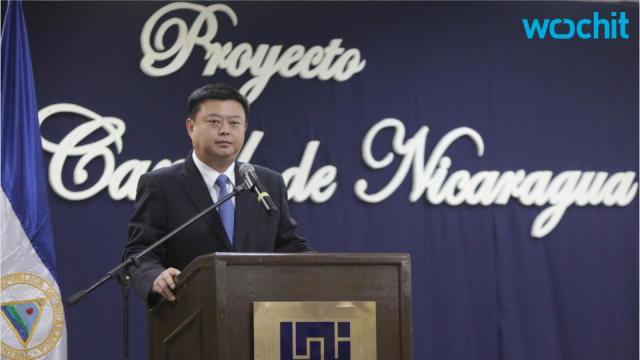‘Nicaragua Canal - potential threat to the US and Western powers’
Published time: December 26, 2014 12:38
The Nicaragua Canal can become an alternative route through Central America for China and Russia, as well as an alternative route for potential military use right in America’s backyard, international consultant and author Adrian Salbuchi told RT.
Nicaragua has begun the most ambitious construction project in Latin America - a waterway connecting the Atlantic and the Pacific oceans that is supposed to become an alternative to the Panama Canal. It is 278 km long, will cost around $50 billion and provide jobs for 50,000 people. The construction is being run by a Hong Kong company and should be completed by 2020. The project is supposed to boost Nicaragua’s GDP.
Meanwhile, ecologists fear the giant ship canal will endanger Lake Nicaragua - Central America's largest lake and Nicaragua’s largest main water source – which the waterway will run through. Locals are concerned their homes and farm lands are under threat. According to some estimates, around 30,000 people may be displaced by the waterway.
RT discussed the project and protests it sparked in Nicaragua with international consultant and author Adrian Salbuchi.
RT: The residents are promised compensation. Why are they protesting? Were they misinformed about the project?
Adrian Salbuchi: It’s understandable because we are talking about the mega project that will displace many people; some estimates say as many as 30,000 farmers will be displaced. There will be an ecological impact, no doubt about it. However, I think we have to be very careful to distinguish between what is this spontaneous reaction of many of these farmers which is probably genuine, and what may also be some engineering of social convulsion from foreign powers, not only the US that had been doing that in the so-called Arab Spring and that had been doing that throughout Latin America for many decades. So I wouldn’t be surprised if some of the exaggeration or some of the future problems do come from some American agitators or Western agitators. Don’t forget this is the country which is governed by President Daniel Ortega of the Sandinista Liberation Front, who are enemies of the US for many decades.
RT: Just to push you a bit on this, do you think there may be a foreign state involved?
AS: Absolutely. And we should even take it together with what just happened with Cuba because if America is trying to bring Cuba into the fold, it might try to play a similar card with Nicaragua to try to range them away as in the case of Cuba from Russia, in the case of Nicaragua from China. We have to see not just the trade implications that are huge, and the economic implications that are also huge, as well as social and ecological, but much more so the geopolitical implications. This is a Chinese private company, but we all know that very likely behind the Chinese investment there are geopolitical factors being handled and being driven by the Chinese government quite rightly, who have an increasing interest throughout Latin America.
RT: There are a lot of expectations for the waterway. How important will it be and what benefits can it bring?
AS: For Nicaragua they will be enormous because it will definitely improve their living standards all together. But from the point of view of China it will be an alternative route for commerce, for trade and even for future potential military use right in America’s backyard. When I say China, we might talk not just about China but also about BRICS, notably Russia and China, which are the two main geopolitical BRICS partners. I think it’s very important to understand the problem, to stop looking at Mercator projections of the global map and start looking at the actual globe. The best way to understand geopolitics is with a globe, and if you look at it you will see how very important this alternative route through Central America will become for China, for Russia and potentially it’s an important threat to the US and the Western powers.
The statements, views and opinions expressed in this column are solely those of the author and do not necessarily represent those of RT.



